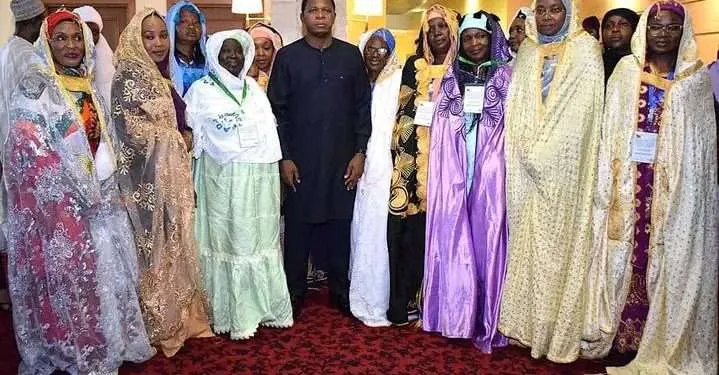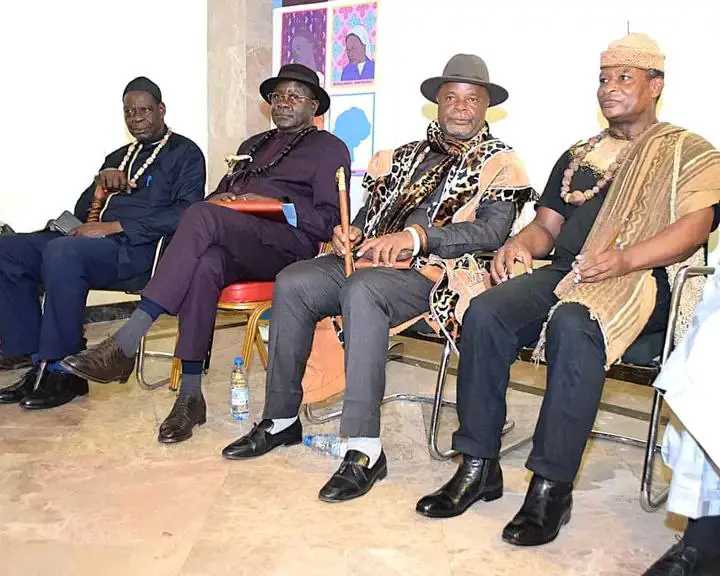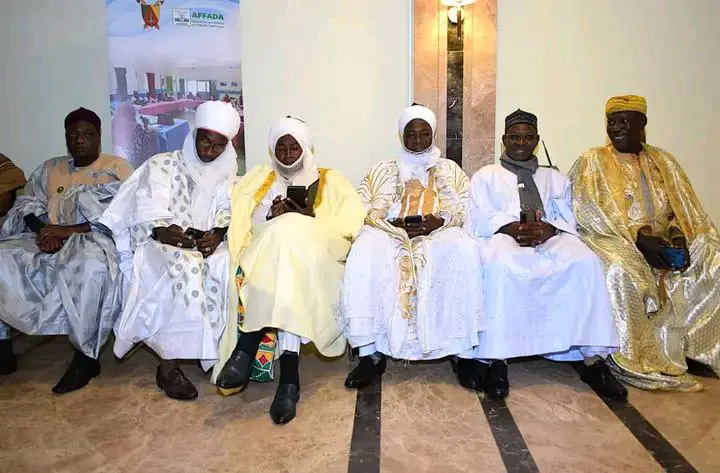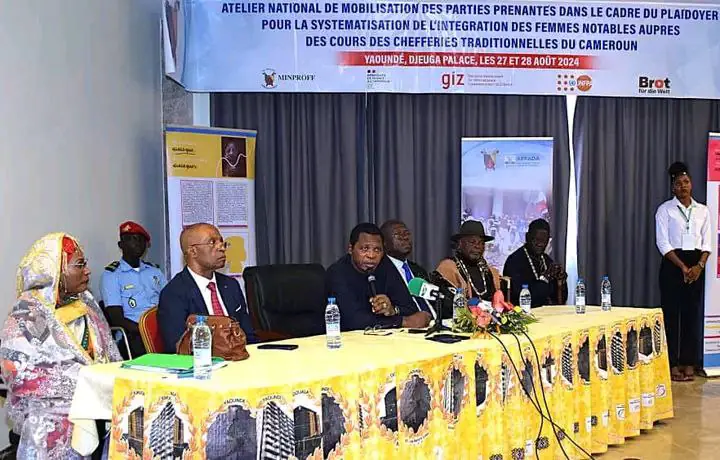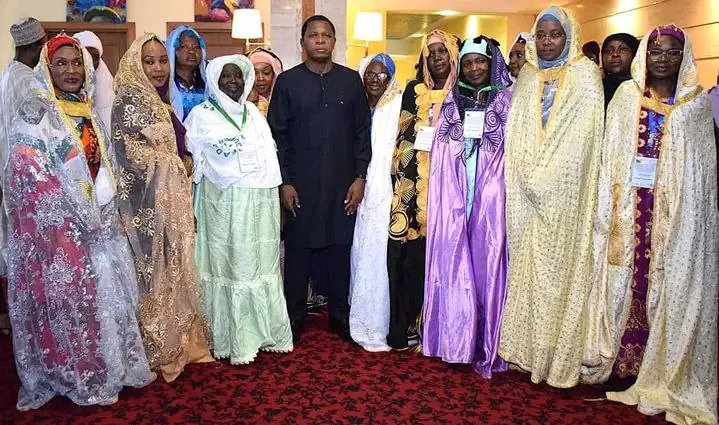Cameroon’s Minister of Territorial Administration, Paul Atanga Nji, has called for greater inclusion of women in traditional leadership roles. This appeal was made during a national workshop held on Tuesday, August 27, in Yaoundé, aimed at mobilizing stakeholders to advocate for the systematic integration of women into traditional chieftaincy courts across Cameroon.
Minister Atanga Nji highlighted the unique and critical contributions women can make in traditional administration, suggesting that they could serve as notables or even assume leadership positions themselves.
The workshop addressed traditional norms in certain regions of Cameroon, particularly in Lamidats, where women have traditionally been relegated to the background. To tackle this issue, the event brought together traditional Muslim authorities from the northern regions, alongside chiefs and fons from other parts of the country.
The workshop was organized by “Association des Femmes et Filles de l’Adamaoua” (AFFADA), a gender-focused NGO led by its President, Francois Baba. During the event, Minister Atanga Nji expressed his full support for AFFADA’s initiatives, stating, “women play an essential role in society that is crucial for traditional chieftaincies.”
President Baba emphasized that the goal of promoting women’s roles is not to replace men but to foster gender parity. In many chiefdoms and Lamidats in Cameroon, succession to the position of chief or king is still exclusively reserved for male children, leaving women marginalized.
Against this backdrop, the Minister’s call for increased female representation in traditional leadership positions seeks to address this longstanding discrimination.


